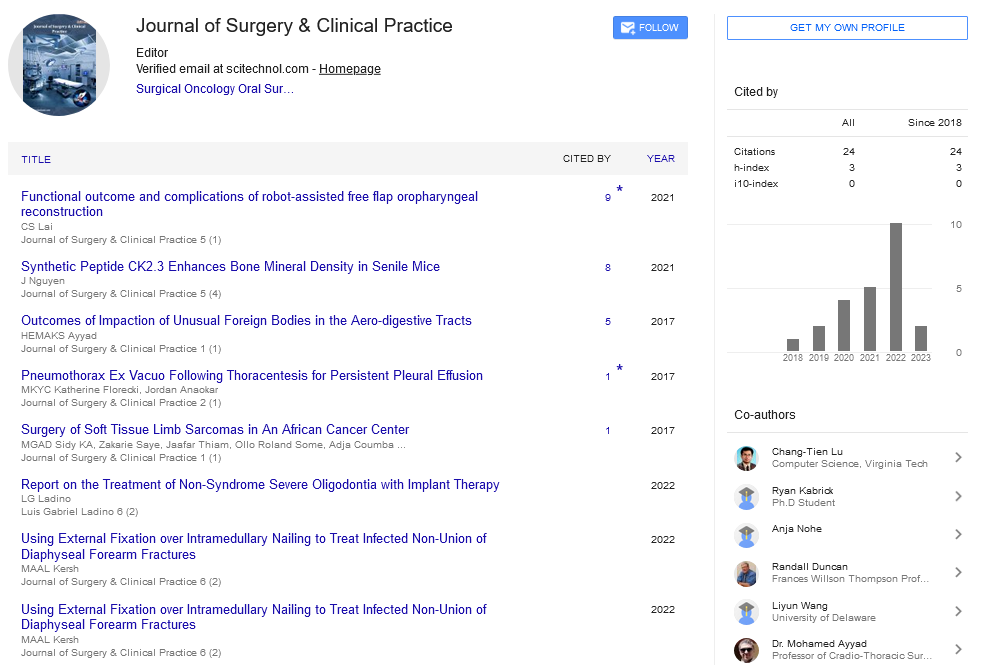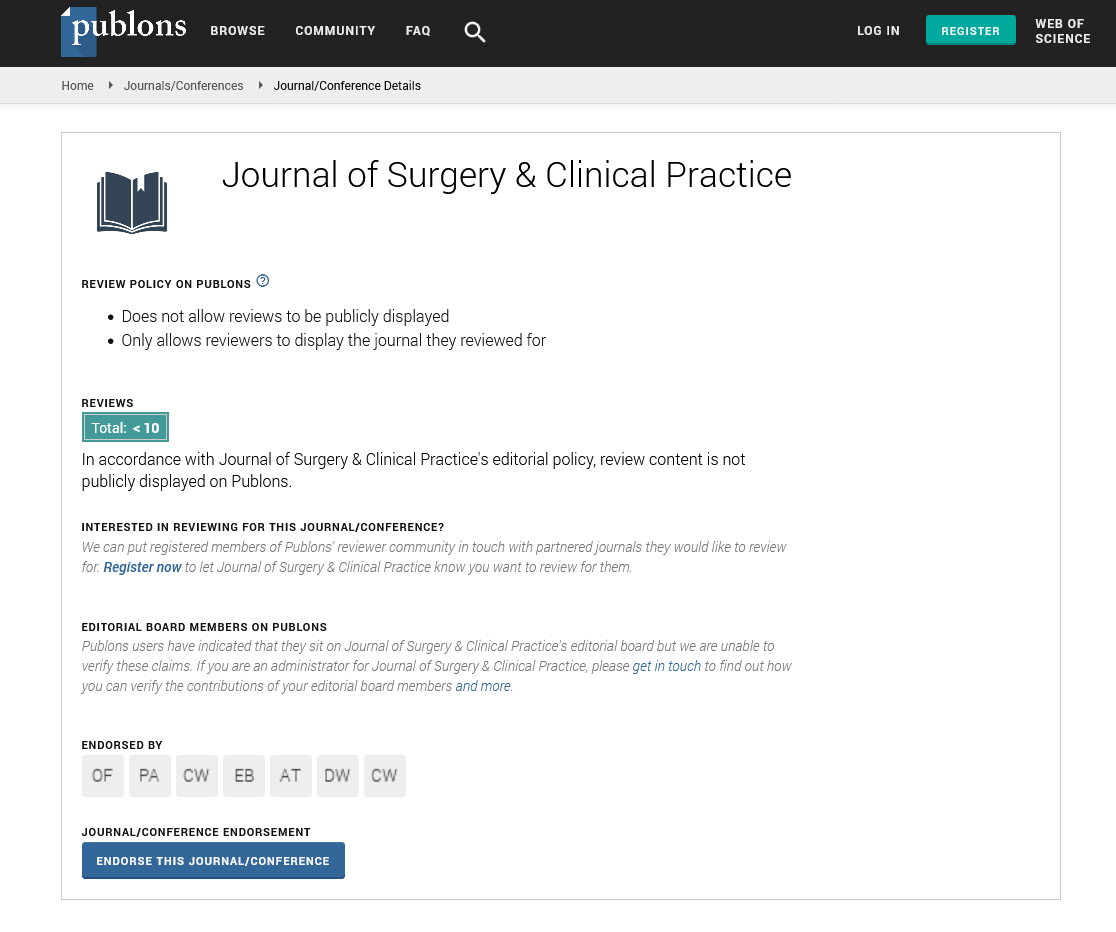Opinion Article, J Surg Clin Prac Vol: 7 Issue: 2
Uses of Reproductive Surgery in Treatment of Reproductive Disorders
Shannon Crotwell *
Department of Reproductive Surgery, National Institute of Health Research, London, UK
*Corresponding Author: Shannon Crotwell
Department of Reproductive Surgery,
National Institute of Health Research, London, UK
E-mail: shan@crtw.uk
Received date: 23 May, 2023, Manuscript No. JSCP-23-107197;
Editor assigned date: 23 May, 2023, PreQC No. JSCP-23-107197 (PQ);
Reviewed date: 12 June, 2023, QC No. JSCP-23-107197;
Revised date: 19 June, 2023, Manuscript No. JSCP-23-107197 (R);
Published date: 26 June, 2023 DOI: 10.35248/JSCP.23.7.100383.
Citation: Crotwell S (2023) Uses of Reproductive Surgery in Treatment of Reproductive Disorders. J Surg Clin Prac 7:2.
Description
Reproductive surgery is a valuable tool in the field of reproductive medicine, as it plays an important role in enhancing fertility and treating various reproductive disorders. These surgical procedures used to know about underlying factors that may hinder conception or contribute to reproductive health issues. Reproductive surgery is indicated for individuals or couples facing fertility challenges or reproductive disorders that can be effectively treated surgically. It is often considered when other treatment options, such as medication or assisted reproductive technologies, have proven unsuccessful. Indications for reproductive surgery include tubal blockages, uterine abnormalities (such as fibroids or polyps), endometriosis, ovarian cysts or tumors, and male factor infertility.
Tubal surgery used to restore or bypass blocked fallopian tubes, which can stops the passage of sperm and fertilization of the egg. Procedures like tuboplasty or salpingostomy are performed to repair or create alternative pathways for the sperm and egg to meet, thus improving fertility. Uterine surgery involves procedures to address abnormalities within the uterus, such as uterine fibroids, polyps, or congenital malformations. Myomectomy is performed to remove fibroids, hysteroscopy is used to remove polyps or correct uterine septum, and metroplasty is performed to address uterine anomalies, thus enhancing the chances of successful pregnancy. Laparoscopic surgery is commonly employed to diagnose and treat endometriosis, a condition where the tissue lining the uterus grows outside of it. Excision or ablation of endometriotic lesions helps alleviate pain, improve fertility, and restore reproductive function.
Ovarian surgery is performed to treat ovarian cysts, remove tumors, or address conditions such as Polycystic Ovary Syndrome (PCOS). Procedures include ovarian cystectomy, oophorectomy (removal of the ovary), or ovarian drilling (used in PCOS treatment) to restore normal ovarian function and improve fertility. Following reproductive surgery, appropriate postoperative care is essential to promote healing and optimize fertility outcomes. Patients are closely monitored for any signs of complications, such as infection or excessive bleeding. Pain management is provided to ensure comfort during the recovery period. The healthcare team provides instructions regarding wound care, restrictions on physical activity, and follow-up appointments. In some cases, patients may be advised to undergo additional fertility treatments, such as In Vitro Fertilization (IVF), after the surgical procedure to maximize the chances of successful pregnancy. This surgery can significantly enhance fertility and improve reproductive health outcomes. The success rates of these procedures depend on several factors, including the underlying condition, the type of surgery performed, and individual patient characteristics. Reproductive surgery has been shown to increase pregnancy rates in cases of tubal blockages, uterine abnormalities, endometriosis, and certain ovarian conditions. Additionally, it can alleviate pain, improve quality of life, and enhance overall reproductive function in individuals with reproductive disorders. Reproductive surgery plays an important role in enhancing fertility and treating reproductive disorders. With advances in surgical techniques and personalized care, reproductive surgery continues to evolve, providing improved outcomes and expanding possibilities for individuals seeking to achieve successful pregnancies and overcome fertility challenges. Close collaboration between patients, healthcare providers, and fertility specialists is crucial to ensure appropriate patient selection, accurate diagnosis, and effective treatment planning, ultimately leading to enhanced fertility and improved reproductive health.
 Spanish
Spanish  Chinese
Chinese  Russian
Russian  German
German  French
French  Japanese
Japanese  Portuguese
Portuguese  Hindi
Hindi 
